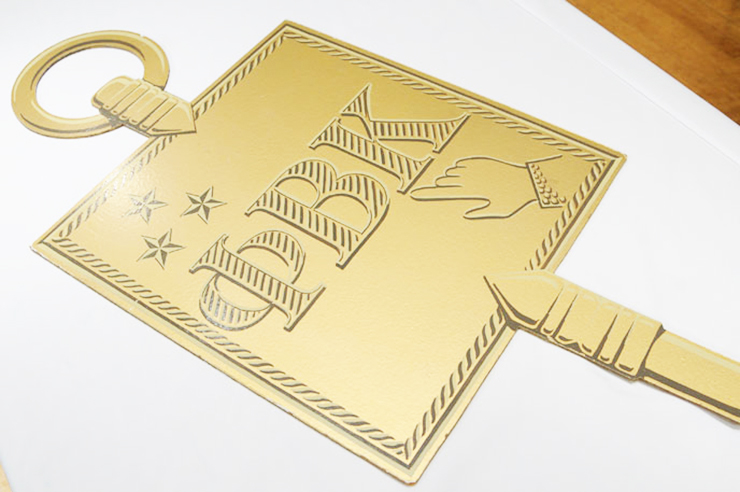
This semester, sixteen members of the class of 2019 were elected to Phi Beta Kappa, an academic honor society.
The new members are: Stephen Clement, Sacharja Cunningham, Katherine Dolan, Nicholas Falcone, Elisabeth LaMantia, Emily Liu, Nora McEntee, Rowan Myers, Delaney Nicol, Zachary Perez, Julia Rosenbaum, Micaela Rostov, Robert Taylor, Julia Tsvyakh, Colleen Wahl, and Rebecca Williams,
Founded in 1776, Phi Beta Kappa celebrates the academic rigor and breadth provided by a liberal arts and sciences education. The invitation process is merit-based and highly selective, providing opportunities for those selected to connect with other successful members from previous years.
“I think Phi Beta Kappa is a recognition of that partnership and growth,” said Rebecca Williams ’19. “I’ve spent a lot of time at Hamilton discussing fascinating ideas with my classmates, and without that collaboration, I could not have learned nearly as much.
“Phi Beta Kappa literally means, ‘Love of wisdom is the guide of life,’ so that’s pretty cool.”
Phi Beta Kappa selects students who take advantage of a liberal arts education; Williams, a history major, has done exactly that. In addition to her major, she has excelled courses in religious studies, chemistry, Russian studies, and education.
“I love my history courses, but I don’t want to see every situation I face only through the lens of one discipline and one academic tradition,” said Williams. “It’s helpful to have learned from professors and students who see things differently, and I think Hamilton encourages that.”
Similarly, creative writing major Emily Liu ’19 says, “Outside of my major and minor, I’ve taken classes in computer science, women’s studies, philosophy, linguistics, and I’ve learned three languages at Hamilton (Chinese, Japanese, and American Sign Language.)
“I chose Hamilton because I knew the open curriculum would allow me to take courses in many different areas that I’m interested in, and to me, being elected to Phi Beta Kappa means that I successfully took advantage of the opportunities at Hamilton to explore a breadth of academic subjects.”
Many members of Phi Beta Kappa believe that this academic diversity is due to Hamilton’s open curriculum.
“Hamilton doesn’t burden students with excessive course requirements — I always felt free to explore the whole curriculum on offer here,” said Rowan Myers ’19, a public policy major and new Phi Beta Kappa inductee.
“In being elected to Phi Beta Kappa, I feel that I have been able to foster my education in a way that will enable me to tackle life’s challenges and cultivate an environment in which I can help people in a holistic manner,” said Julia Tsvyakh ’19, a neuroscience major. “As such, I am excited to take the skills I have learned in my four years at Hamilton to medical school with me in the fall, where I look forward to continuing to explore methods for helping those around us in a comprehensive manner.”
Hamilton is widely known for its open curriculum, and many students say they feel encouraged to try different courses outside of their majors — some majors even require a course taken outside of the department. Several students who have recently been invited to join Phi Beta Kappa found that it was their non-concentration courses they took that stuck with them the most.
“Even though the only course I ever took in anthropology was sociolinguistics, that one class has completely changed the way I think about language,” said Colleen Wahl ’19, a computer science major. “Since language is part of essentially everything I do, sociolinguistics has crept into everything I do, too.
“Honestly, I think that kind of thing is the biggest plug I can give to Hamilton’s open curriculum. You don’t know how the different, seemingly unrelated things you learn are going to connect until you learn them, but then they all do connect somehow, and it’s super cool.”
Hamilton’s unique open curriculum generates interest in many different areas of study — both on-campus and off-campus — through a plethora of pre-approved programs.
“When I participated in the Hamilton NYC Program, I was able to take classes on Global Financial Markets while having my dream experience as a finance intern of the Brooklyn Nets,” said Delaney Nicol ’19, an economics major. “Hamilton also allows you to expand your education internationally, and I was lucky enough to take advantage of this opportunity and fully immerse myself in Spain’s culture when I studied abroad. Education at Hamilton extends beyond the classroom, and these experiences are just as valuable as the rigorous academic coursework offered on campus.”
The College says it hopes students gain a comprehensive understanding of the world during both their time on the Hill and abroad in other parts of the world. By virtue of their election, the students selected to Phi Beta Kappa this semester have demonstrated a commitment to taking advantage of the open curriculum through an exploration of courses outside of their departmental majors.
In the fall, nine members of the class of 2019 were also elected to Phi Beta Kappa. They were: Ian Chen, Richard Court, Yongzheng Liang, Elizabeth Maier, Lona Sniderman, Jonathan Stickel, Ryan Tamburrino, Benjamin Walsh, and Jinghong Wang.
Previous notable Hamilton undergraduates elected to Phi Beta Kappa include two Nobel Prize recipients — Elihu Root, U.S. Secretary of State, New York senator, and recipient of the 1912 Nobel Peace Prize, as well as Paul Greengard, Professor at the Rockefeller University and recipient of the 2000 Nobel Prize for Physiology or Medicine. B.F. Skinner, psychologist, proponent of behaviorism, and recipient of the National Medal of Science was also an elected member.

























